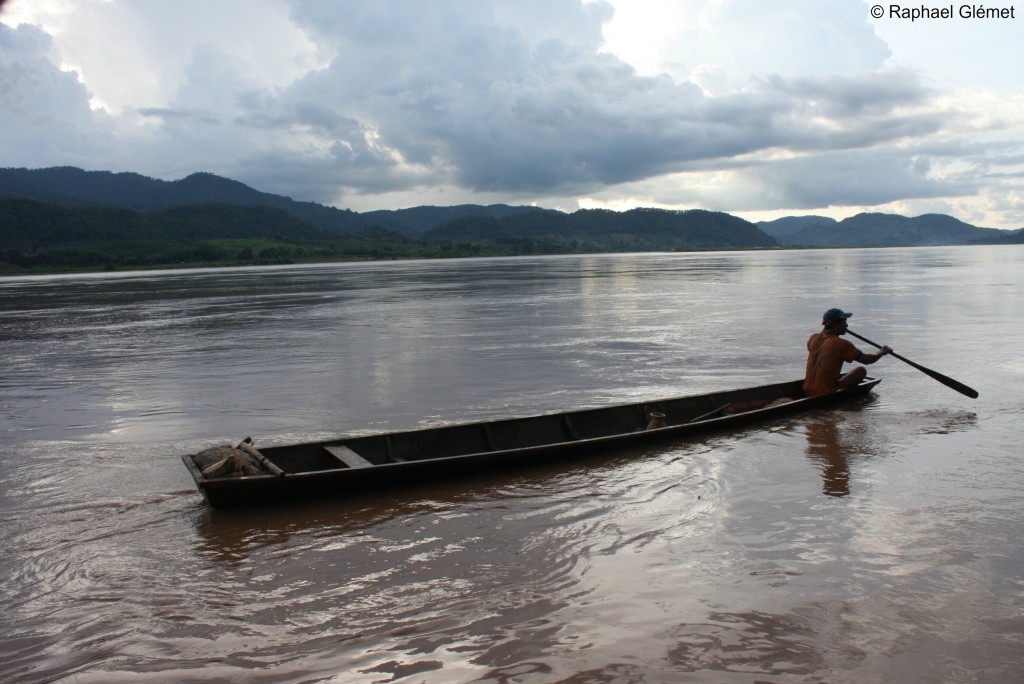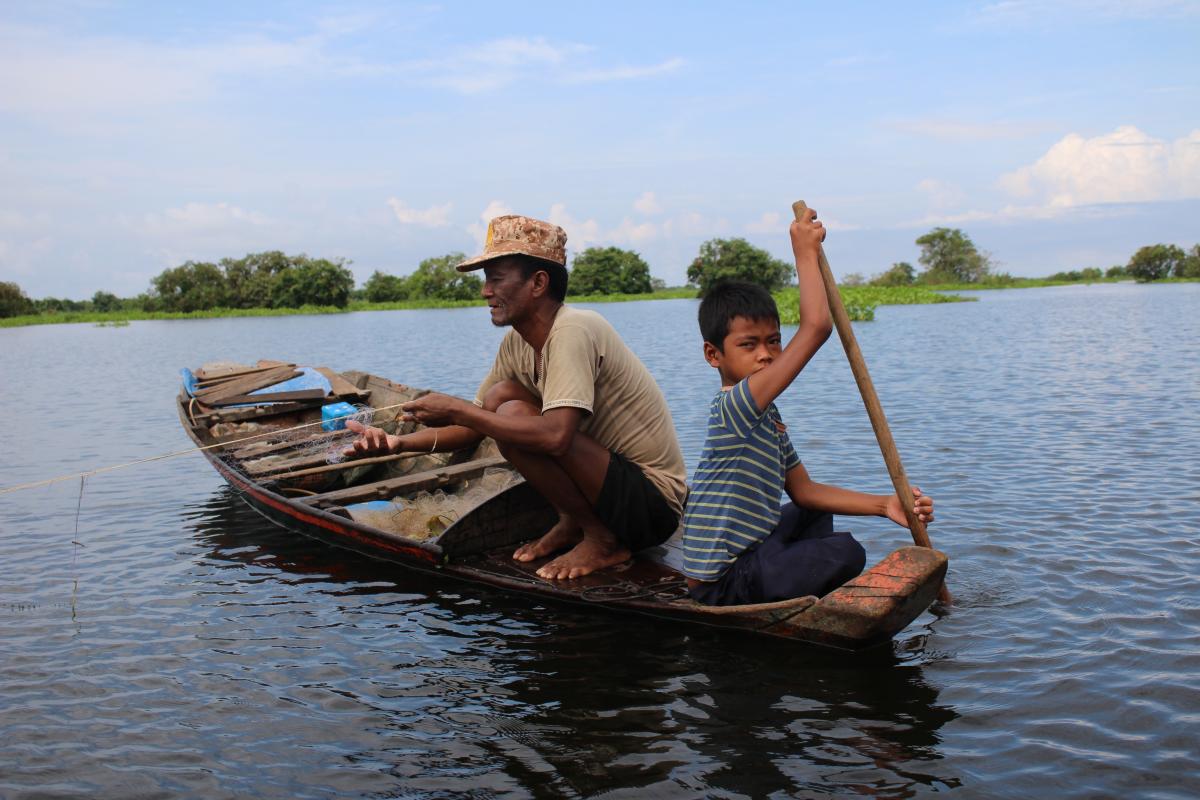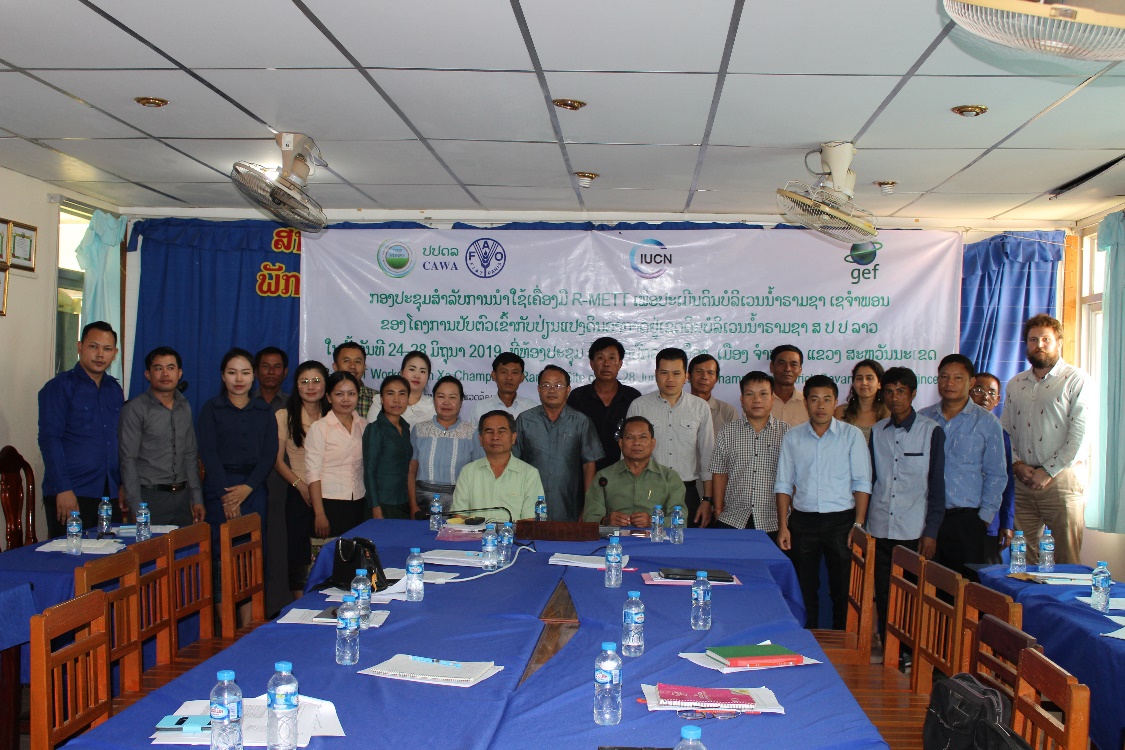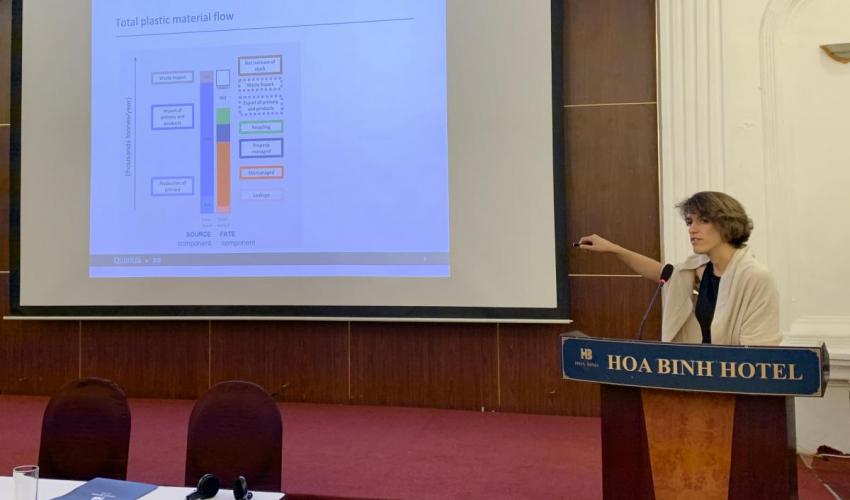Video: Key stakeholders’ perspectives on International Water Law in the Mekong
International rivers, such as the Mekong, are crucial arteries carrying the lifeblood of freshwater that sustains human existence and ecosystems around the world. It is estimated that there are 276 transboundary river basins (TRB) and 200 transboundary aquifers around the world but 60% of the world’s transboundary basins lack any type of cooperative management framework. To ensure the protection of freshwater ecosystems and to promote transboundary cooperation, effective international water legislation needs to be in place.

Boat on the Mekong river in Lao PDR
Photo: © Raphael Glèmet
International negotiations related to the Mekong River are currently carried out within the framework of the Mekong Agreement. Adopted by Thailand, Lao PDR, Cambodia, and Viet Nam in 1995, the agreement is a broad statement of intent for basin-wide cooperation and equitable use of the river's shared waters.
As the pace of development accelerates the need for a clear and binding legal baseline when it comes to harnessing the Mekong will only increase. The internationally recognised rules for governing the Mekong are encapsulated in the UN Watercourses Convention (UNWC), which was approved by the UN General Assembly in 1997 and came into force in 2014 after Viet Nam became the 35th country to ratify it. The convention was specifically written to complement and strengthen existing river agreements by aligning them with customary international law. Recent research conducted by IUCN identified that a broad ratification of the UNWC in Lower Mekong Basin countries would reinforce the Mekong River Commission’s mandate to facilitate cooperation, develop technical capacities, defuse conflict and strengthen the Mekong Agreement itself.
IUCN Asia and the BRIDGE programme supported a series of dialogues and workshops on International Water law. The video below showcases the importance of legal frameworks such as the Mekong Agreement and the UNWC as instruments to ensure the protection of freshwater ecosystems and to promote transboundary cooperation.
Stakeholders including policymakers shared their views on the existing challenges and opportunities in achieving cooperative transboundary water governance, and the need for legal and institutional framework in the Mekong region. Interviewees include Mr. Pham Tuan Phan, CEO of the Mekong River Commission Secretariat, Dr. Apichart Anukularmphai, President of the Thailand Water Resources Association, HE Watt Botkosal, Deputy Secretary General of the Cambodia National Mekong Committee, Mr. Tek Vannara, Executive Director of the NGO Forum Cambodia, and Mr Tran Duc Cuong, Vice Chairman of the Viet Nam Mekong River Commission.
The video will be used to support further dialogue on transboundary water cooperation under phase 3 of the BRIDGE programme.
Download:
Legal analysis on how the UN Watercourses Convention complements the Mekong Agreement published
Building River Dialogue and Governance (BRIDGE) is an IUCN initiative that focuses on enhancing water governance capacities in nine trans-boundary basins in three regions across the globe. Through approaches that emphasize stakeholder learnings and consensus building, BRIDGE aims to catalyse transboundary cooperation for equitable and sustainable water resources development. BRIDGE is implemented by IUCN with the support of the Swiss Agency for Development and Cooperation. In the Mekong region, BRIDGE activities are carried out in the Sekong, Sesan and Sre Pok river basins.



